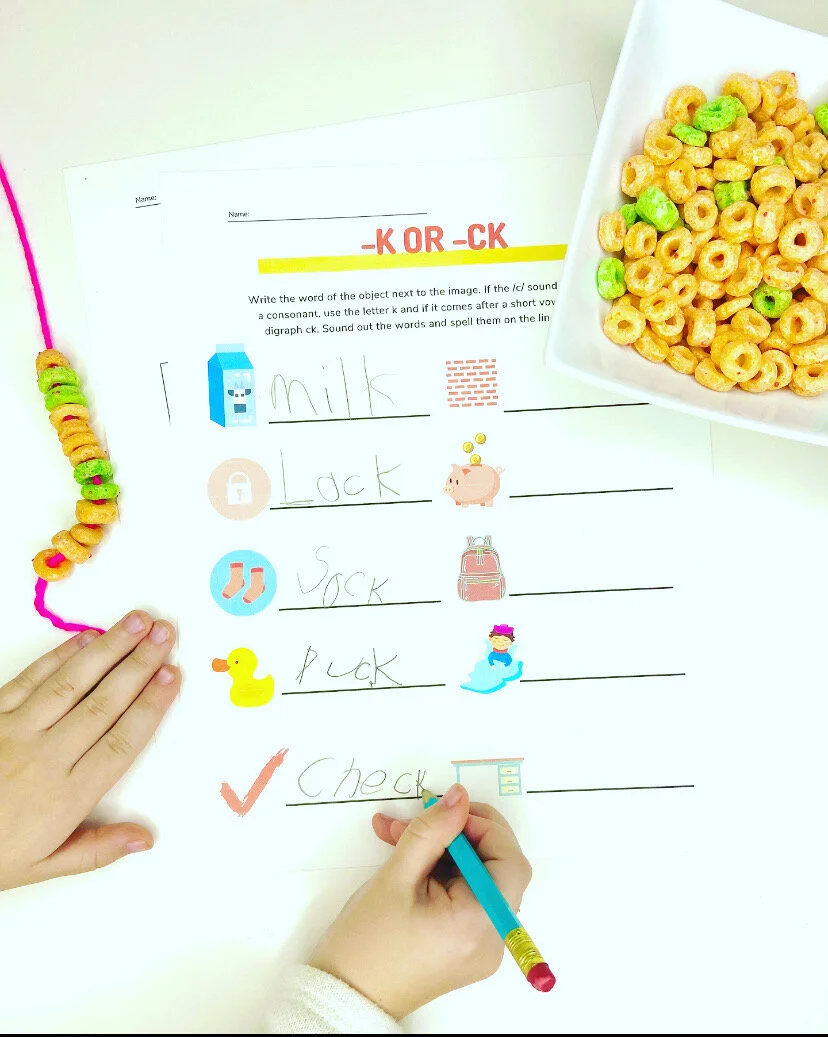3 Simple Ways to Help Your Child Achieve Academic and Reading Success
/Photo Melissa Kaufman
“I just don’t want to go to swim lessons today because I missed last week and I’m afraid I won’t do a good job,” my five-year-old explained to me right after having a sudden tantrum.
I gathered my composure after discovering what triggered the tantrum. I tried to downgrade the perfectionism that I solely instilled in her five short years and then she said, “Well, maybe if I can’t make it to the end of the pool, I’ll just wait a second and Coach Sam will push me to the end.”
Eeeee. Facepalm.
Not what I was hoping she would say.
But my daughter was doing exactly what I trained her to do – to only try when she knew she would succeed.
I’ve also noticed that my five-year-old isn’t overly interested in reading. Yep, daughter of a reading teacher - not interested. After this swim lesson, a light bulb went off that perhaps she’s avoiding reading because it’s a newer skill. I am attempting to practice in my own home what I preach as a learning specialist in a school with other parents. I desire for my children to feel positive about their learning and school experience, more than I care about their other achievements because I know this base will allow them to encounter all challenges and opportunities in life.
In the classroom, I witness firsthand how some children succeed or do well in school because they believe they can, while others hide their talents and abilities. As a mom, I’m attempting to implement some of the strategies I use in the classroom in hopes to better my relationship with my kids and instill more confidence.
Here are a few things I'm trying at home that I practice at school:
1. Praise effort
Children are seeking an identity, and at the same time, they are assessing their abilities as their image–creating labels such as “good at math” or “doesn’t love reading.” Carol Dweck’s research in her book, Mindset, supports praising and modeling effort to instill a growth mindset. By doing so, we can help our children feel more confident in tackling new tasks, regardless of ability.
2. Redefine success
As you can see from my story above, children pick up on what your idea of success looks like by watching and listening. They are eager to please and will quickly interchange love with success.
Help your child redefine both success and failure by taking a step back. Stepping back can be challenging to do when you have the heavy responsibilities of keeping your child safe, helping them set appropriate boundaries, and still allowing them to take risks. So start small. Let them put on their own shoes, even if they are on the wrong feet or help set the table even if all the tableware is glass. For older children, let them do their homework without checking it so that they can learn what skills they need to improve. I know these things might make you cringe but wait for a moment and see if you recognize a positive emotional response after they complete the task on their own.
3. Create a strong foundation
You do not need to start a phonics program or force "learning time" to give your kids a strong foundation in phonics and handwriting. For example, take advantage of commute time to rhyme or bathtime to spell. Sounds impossible? Try keeping it simple. How about getting Munchkin alphabet letters in the bath and setting up a few consonant-vowel-consonant words in the tub before your child gets in the bath. See if they notice the words and help them sound out the words on their own. Here is a step-by-step how-to and a list of words to get you started!



















